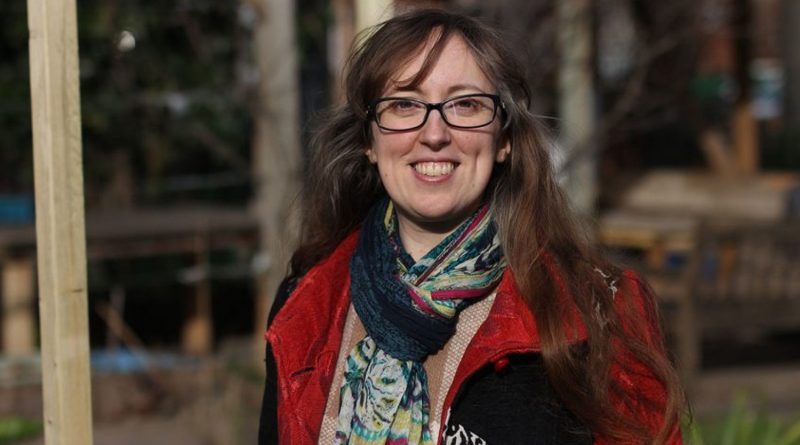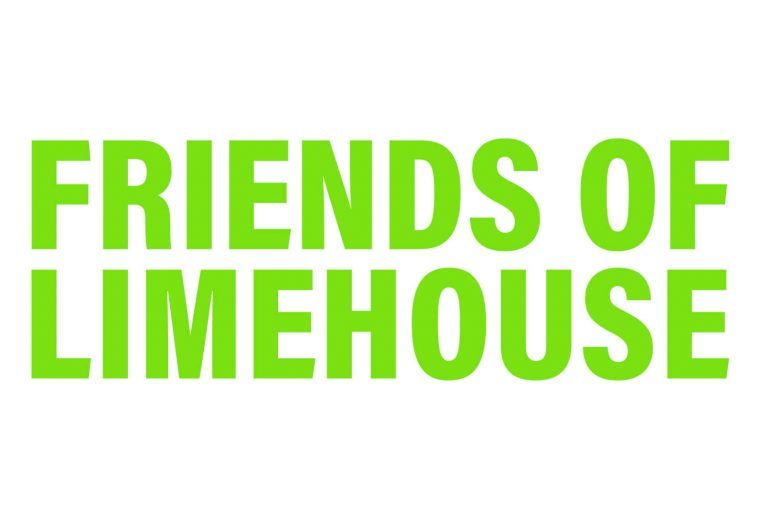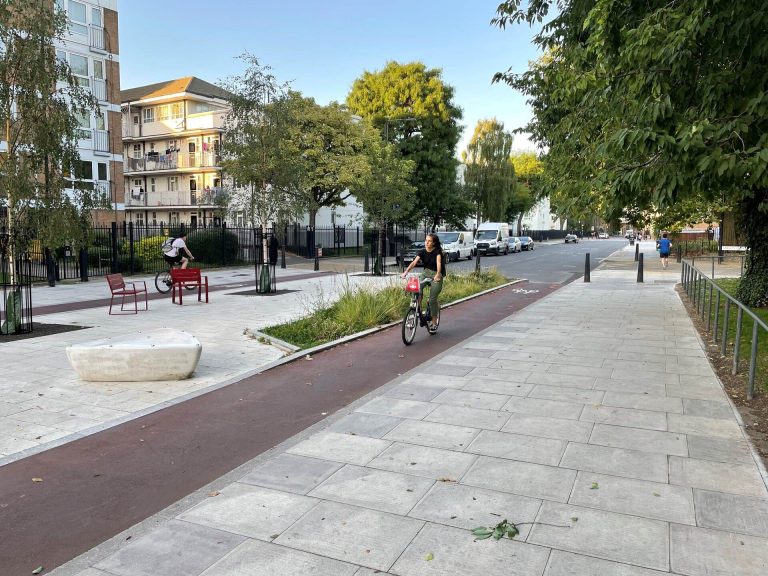Going plastic-free – a journey from ‘I’ to ‘we’ and how the personal becomes the political
With the Plastic-free Roman Road project gaining traction, Lizzy Mace shares her journey from passenger to activist, and why meaningful change can never happen when we’re waiting for others to do it for us.
I remember sitting in the back of my mum’s car when I was 10 years old and announcing to my best friend that if I was prime minister I would ban plastic bags.
Fast forward to late 2015. The Conservatives had won the election and within months were cutting support for renewable energy, approving fracking across our countryside, all promises of being the ‘greenest government ever’ happily bulldozed over.
I found myself remembering that conversation and wondering what happened to that 10-year-old? How had I been so sure, so confident, felt so clearly what needed to happen, and then done nothing? I suppose since it was grown-ups who were teaching me the problems of plastic litter and the impact on our wildlife, I assumed those grown-ups were also fixing them. I’d just got on with my life.
What could have been done?
And here I was in 2015, myself now a ‘grown-up,’ still thinking that some other grown-ups were fixing this, and finally realising that things were not being fixed. Far from it, they were getting worse. This year as I approach my 40th birthday (I know, I don’t look a DAY over 39!), I can’t help but wonder, what difference could have been made in the last 30 years?
Latest estimates suggest that each year we use 7 billion plastic bags in the UK alone, rising to between 1 and 5 trillion globally. Only 1% of those are recycled, while the rest go to landfill where they pollute the land and seas and will continue to do so for centuries.
Over 44% of sea birds have ingested or been entangled in plastics, and 100,000 sea creatures are killed by plastic every year. While I don’t think I would have particularly enjoyed being prime minister at the age of 10, if I had been – and succeeded in getting my single policy through government – that one act could have prevented 210 billion bags entering our environment in the UK, and saved three million sea creatures from dying through starvation or choking on plastic.
What can I do?
When I realised how little progress had been made in 30 years, despite the powers-that-be knowing about the situation, I felt powerless. I sensed the urgency of the environmental crises we’re facing yet I saw only backwards steps being taken by our so-called leaders. I found myself asking, ‘What can I do?’
It felt like all I could do was change my own habits, to not be part of the systems destroying our ability to live on this planet. Step by step I reduced my own use of single-use items – not just plastic packaging but anything designed to be used once and thrown away.
Within about three months I had become almost completely plastic-free, and saved money in the process, and I started sharing what I was doing on social media. I had so many responses asking for tips. I realised that people want to reduce their individual environmental impact but they don’t know how, and don’t have the time to research the alternatives.
We’re all just getting on with our lives, feeling overwhelmed just with our day-to-day problems and assuming this huge issue is being dealt with by someone else – a grown-up, someone with more power, or authority, or responsibility.
I feel very strongly that the most sustainable option should also be the most convenient. It shouldn’t be down to individual choice but requires action by manufacturers and legislation by government to ensure that action takes place.
Talking to other residents at the Globe Town Common Vision events run by Roman Road Trust in December 2017, we found a few of us wanted to create a campaign to help make that a reality in our high street. We shared ideas and with the help of Roman Road Trust, Queen Mary University Geography Department came on board.
In September last year we soft-launched the campaign with 200 first-year students carrying out a survey of Roman Road businesses’ single-use plastic habits and attitudes. The data gathered has now been analysed and we’re pleased to present the full report here.
What can we do?
I noticed that week that the question I was asking myself had morphed from ‘What can I do’ to ‘What can we do?’ And I’d realised that I could do more than just remove myself from those damaging systems – I could join with others to help change them.
Looking now to the next 30 years, where might we be in 2049? Last year the government set a target to reduce single-use plastic packaging by 2042. Almost another 25 years. And yet also last year, a study by the Ellen Macarthur Foundation estimated that by 2050 there would be more plastic than fish in the sea by weight.
Horrifyingly, that study used figures for today’s weight of fish in the sea, and compared this to projections of how the amount of plastic being produced and dumped is likely to increase. It does not take into account the fact that very tide of plastic waste will itself reduce fish populations – or indeed the impact of over-fishing, or of sea temperature rises, ocean acidification and ‘dead zones’ all caused by climate change and pollution.
Shocking as it is, the idea that ocean plastic will outweigh fish by 2050 is by the researchers’ own admission a conservative estimate. We simply can’t afford to spend 25 years slowly reducing our plastic consumption and waste. We can do better – and we need to – for the sake of life on the planet.
It’s hugely promising to see from our survey that there is widespread support from businesses but – just like the people asking for tips when I shared my waste-reducing steps online – they don’t know how to do it and don’t have the time to put in the research. This is one place where the campaign can help. We’re now using this data to plan the most suitable ways to help local businesses and residents change their habits and how best to share that knowledge with them.
And what about those ‘grown-ups’ I assumed were fixing this issue? Our government, and the corporations producing the waste in the first place, are simply not taking responsibility, they are not acting with authority, they are not using their power to make the changes needed. We have to be ‘the grown-ups,’ we have to take responsibility, act with authority, and realise that we have power when we work together.
Thankfully there are children and teenagers today who have already realised this – instead of taking the 30 years it took me – and are acting more like grown-ups than our leaders. In response to the School Strike for Climate movement spreading across the globe demanding urgent climate action from governments, I’ve seen people expressing relief and hope that the world will be in good hands in future.
But let’s beware that we don’t fall into the same trap of assuming that someone else is taking responsibility so the rest of us can just get on with our lives while not changing anything. Let us all assume responsibility now and do what we can, together. Let’s all be the grown-ups. By remembering and honouring the children we used to be, and standing with the children of today.
If you’d like to join the campaign and help free Roman Road from single-use plastic, join us at our monthly meet-ups on the first Tuesday of every month at Social Streets Co-Lab.
Facts and figures
- https://theecologist.org/2015/jun/22/greenest-government-ever-no-stretch-imagination
- https://www.1millionwomen.com.au/blog/7-insane-facts-about-plastic-bags/
- https://www.wmnorthwest.com/guidelines/plasticvspaper.htm
- https://www.theworldcounts.com/counters/waste_pollution_facts/plastic_bags_used_per_year
- https://www.theworldcounts.com/stories/interesting-facts-about-plastic-bags
- https://www.ellenmacarthurfoundation.org/assets/downloads/news/New-Plastics-Economy_Background-to-Key-Statistics_19022016v2.pdf




